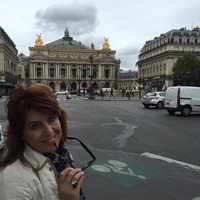COĞRAFYA, TURİZM, KÜLTÜR İLİŞKİLERİNİN TURİZM COĞRAFYASINA YANSIMALARI VE KÜLTÜREL TURİZM Reflections of Geography, Tourism, Cultural Relations on Tourism Geography And Cultural Tourism, 2021
The main motivation for the emergence of the study was to update the article, written years ago u... more The main motivation for the emergence of the study was to update the article, written years ago under a similar title, and to re-evaluate the changing geography, tourism and cultural relations. Why and how do geography, tourism and cultural relations change conceptually and practically? What are the reflections of these changes on space and people? What is the role of tourism geography in the analysis of geography-tourism-culture-heritage-the context of cultural tourism, social changes, Covid-19 pandemic, emerging technologies, national and transnational preservation and planning approaches? The study, starting with these questions, has been tried to be created by considering the current approaches of geography and tourism. The changes experienced by the phenomenon of geography and tourism in different periods, their relations with culture, and spatial interactions have been analysed with an analytical method in the study. In the light of national and international tourism geography literature, thematic review including qualitative and interpretative analysis was used in the study. The study aims to draw attention to new approaches in cultural tourism by looking at changing needs and diversifying research issues from the perspective of tourism geography instead of solving the conceptual expansions and problems of geography, culture, cultural heritage and cultural tourism. Tourism geography constitutes an important context in the change of geography, tourism, culture, cultural tourism relations at the international level and in the development of the new cultural tourism. Differences in terms of conceptual and practical in cultural tourism, changing geography-tourism-culture relations and limitations in the number and quality of international publications are among the striking findings of the study.









Uploads
Papers by Gözde Emekli
COVID-19 on Airbnb’s supply and demand in 40 cities from 17 European
countries in four regions. In terms of supply, hosts followed a wait-and-see
strategy by the availability was set to 0 in the first pandemic wave, and
with the second wave, the sharing activities were completely terminated
by closing profiles. Hosts with entire homes and multiple listings were
more willing to use calendars actively and more reluctant to close profiles
than hosts with private rooms and single listings. Moreover, especially in
the second half of 2020, listings in Northern, Western, and Eastern Europe
suffered significant losses, while hosts in Southern Europe more actively
used calendars. Airbnb demand was even more adversely affected, and
the demand preferences were directed towards entire homes, where
social distance might have been easier and better maintained between
peers, and multiple listings, that might have been more professionally
managed due to commercial concerns. Considering the dependence of
entire homes and multiple listings hosts on income from sharing activities,
it is thought that they may have been more affected by potential income
losses than hosts with private rooms and single listings.
based on the use of resources for tourism purposes. While it has gained importance
in the modern era as an alternative to mass tourism, cultural tourism is the most
important tourism type of the postmodern tourism paradigm. Cultural heritage such
as museums, ruins, historic buildings, and archaeological remains were the main
priorities in cultural tourism developed to supply cultural heritage to tourists. Afterward,
cultural heritage such as architectural structures, traditions and customs,music,
dance, cuisine, and handicrafts attracted attention. Along with this aspect, the attractiveness
of natural surroundings, traditional architecture, and the rural areas where the
cultures are preserved and protected is increasing. Tangible and intangible cultural
heritage such as traditional architecture, customs, crafts, and cuisine are referred to
as rural heritage, creating a strong attraction and competitive power in combination
with the changing trends in tourism. The most obvious benefit of cultural tourism
is that intangible value is transformed into material value that contributes to the
economy of the country (Emekli 2004, p. 45). Cultural tourism development in rural
areas provides an important source of economic income for residents. To continue
this contribution, the preservation of rural heritage and the continuity of its existence
and delivery to future generations must be achieved.
Amaç: Çalışmada turizmin değişimini, teknoloji ile ilişkilerini sistematik ve kapsamlı bir şekilde irdelemek bu süreçte kültür, kültürel miras ve kültürel turizmin nasıl etkilendiğini ortaya koymak amaçlanmaktadır. Kültürel turizmin seçilmesindeki en temel gerekçelerden birini turizmin 3. kuşağı olarak değerlendirilen, turizm-yaratıcılık-kültür ilişkilerinden doğan yaratıcı turizmin kültürel turizme tepki olarak ortaya çıkışı ve bu durumun kültürel turizmin evrilmesine neden olması oluşturmaktadır. Öte yandan kültürel turizmin temel özelliklerinden kaynaklanan, diğer turistik çekiciliklerle kıyaslama olanağı sunmayan yapısı önemli bir rekabet avantajı yaratmaktadır. Özellikle kültür-kültür mirası-kültürel turizm ilişkileri öncelikle kültürün kendi içinde değişen-dönüşen anlamları, toplumsal değişmeler, uzakları yakın yapan teknolojiler, ulusal-ulus aşırı koruma ve planlama yaklaşımları, turizmin değişen uygulama ve içerikleri, kültürel turizm-teknoloji ilişkilerinin mekana yansımaları da konuya ilginin artmasına neden olmuştur.
Yöntem: Bu bağlamda turizm olgusunun, farklı dönemler itibariyle yaşadığı değişimler analitik yöntemle incelenmeye çalışılmıştır. Çalışmada mevcut ulusal ve uluslararası turizm literatüründen yararlanılarak turizm paradigmasının ve kültürel turizmin süreç içinde geçirdiği değişim, teknoloji ile ilişkilendirilerek ele alınmaya çalışılmıştır. Ancak turizmin ve kültürün dinamik ve çok boyutlu olması, ekonomik, teknolojik, siyasal, bilimsel ve toplumsal değişimlerden etkilenmesi konunun kurgulanmasında bir takım sıkıntılara neden olmuştur. Turizm coğrafyası perspektifi ile ele alınan çalışmada yalnızca teknolojiyi soyutlayıp anlatmak çok ta kolay olmamıştır. Bu nedenle bildiride teknolojinin yoğun kullanıldığı, teknoloji ile doğrudan ilişkilerin somut olarak görüldüğü gelişmelerden söz edilmeye çalışılmıştır.
Bulgular: Teknolojik gelişmeler, tüm üretim biçimlerini ve toplumu etkilediği gibi turizmi arz ve talep açısından da şekillendirmektedir. Özellikle internet ve internet teknolojileri, Web1.0 -Web2.0’ın gelişmesi, akıllı telefon uygulamaları, sosyal medya ilişkileri turizmi ve kültürel turizmi içerik ve uygulama olarak değiştirmeye başlamıştır. Tüm dünyada olduğu gibi ülkemizde de bu değişimleri görmek mümkündür. Turizm evrilirken kültürel turizm de geleneksel (tarihi yerler-müzeler-örenyerleri ziyareti) yapısından sıyrılarak yerel kültür ürünlerini deneyimleme istekleri ile karşımıza çıkmaya başlamıştır. Bu durum yeni turizm eğilimlerinin dikkate alınarak turizm stratejilerinin geliştirilmesini zorunlu kılmaktadır.
Anahtar kelimeler: Post modern turizm, kültürel turizm, kültür, teknoloji, turizm coğrafyası.
açısından değiştirmekte, zamansal ve mekânsal ölçekte farklı yansımalar
karşımıza çıkmakta (Oğan & Emekli, 2021) küresel ölçekte kırılgan mekânlar
birçok turizm destinasyonunu farklılaştıracak özellikler sunmaktadır. İklim
değişikliğinin mekân üzerindeki etkileri ve risklerinin son yıllarda daha da
belirgin hale gelmesi, bu mekânların sürdürülebilirliği konusunu gündeme
getirmekte; dağlar, ormanlar, buzullar ve kıyıların iklim değişikliği sebebiyle
gelecekte yok olacağı kaygılarının artması, birçok turistin destinasyon
tercihlerini ve motivasyonlarını doğrudan etkilemektedir (Hindley ve Font, 2015; Lemelin vd., 2010; Lemelin ve Whipp, 2019).
Seyahat blogları; birçok konaklama ve turizm kuruluşu için hedef kitlelere ulaşmanın bir yolu olarak görülmekte aynı zamanda destinasyon pazarlamasında ve kendi markalarını oluşturmada etkili bir rol oynamakta, seyahat davranışlarını ve motivasyonlarını, destinasyona karar verme süreçlerini şekillendirmekte, çeşitli özgün, yaratıcı turistlik faaliyetleri teşvik etmektedir (Rellores vd., 2022).